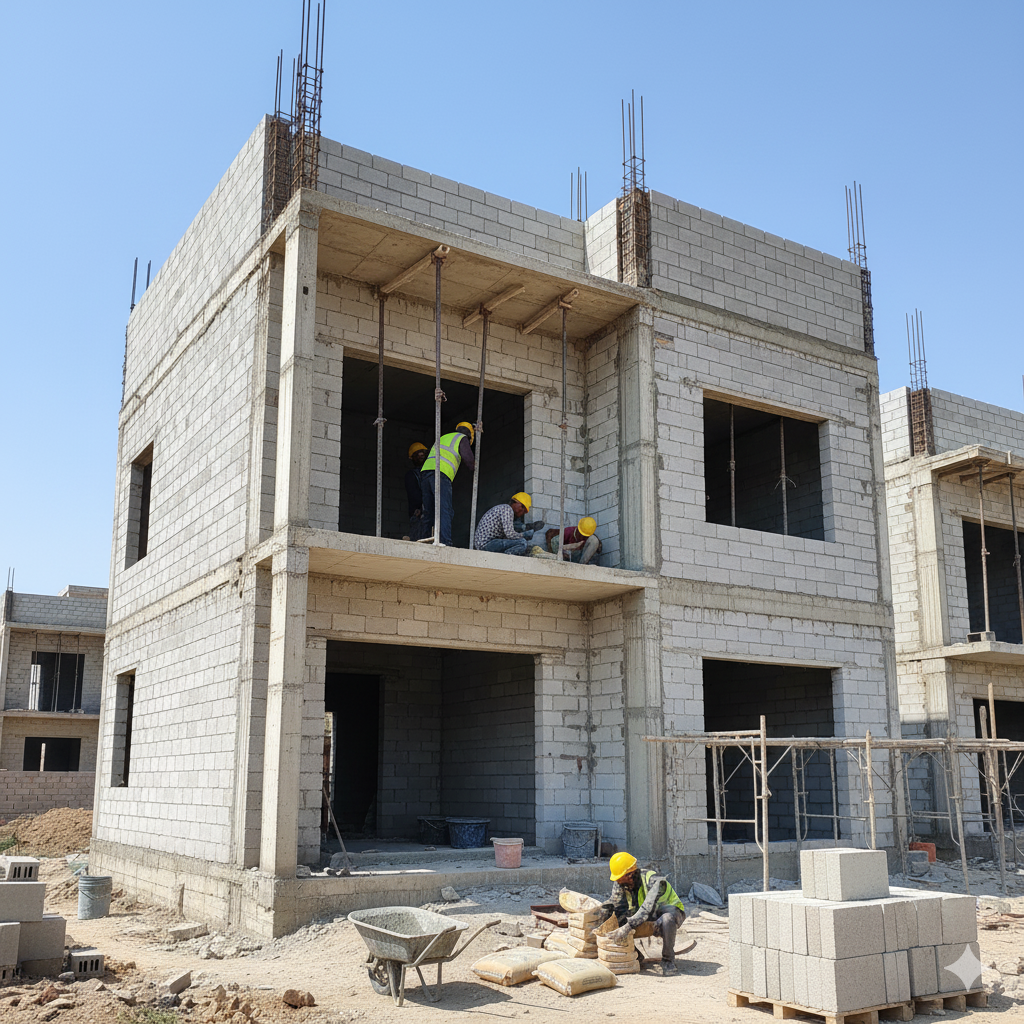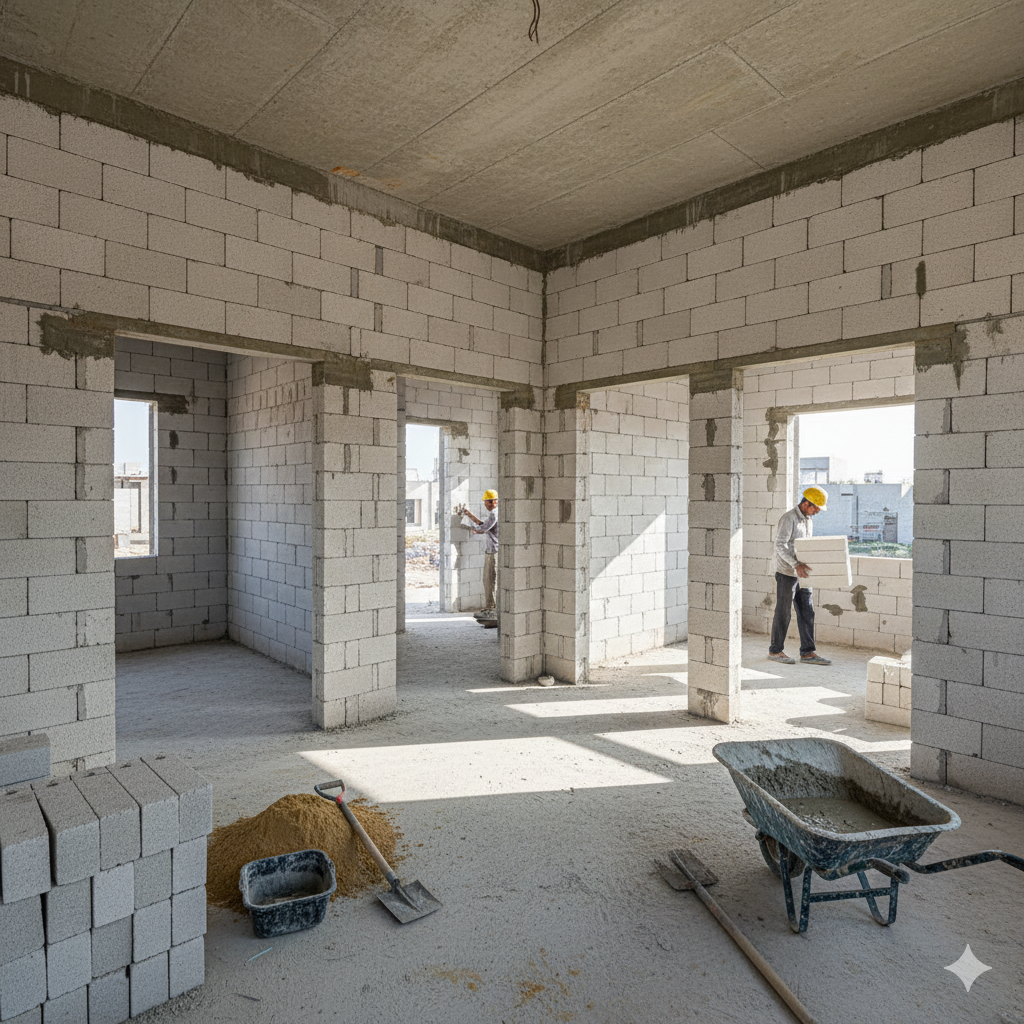Quality building materials form the foundation of lasting construction. The right material choices impact your home's durability, maintenance needs, energy efficiency, and overall value. Understanding material properties helps you make informed decisions that serve you for decades.
Foundation Materials
Your home's foundation requires materials that withstand soil pressure and moisture. Concrete remains the gold standard, offering excellent compressive strength and longevity. Reinforcement with steel bars (rebar) adds tensile strength. Waterproofing compounds protect against moisture penetration. Foundation material quality directly affects your home's structural integrity, so never compromise on grade or specifications recommended by structural engineers.
Wall Construction Materials
Wall materials balance strength, insulation, and cost. Clay bricks offer excellent thermal mass and fire resistance, lasting generations with minimal maintenance. Concrete blocks provide faster construction and good strength. Autoclaved Aerated Concrete (AAC) blocks combine lightweight properties with good insulation. Solid concrete walls maximize durability but increase costs. Consider local climate, availability, and long-term performance when selecting wall materials.
Cement Types and Applications
Different cement types serve specific purposes. Ordinary Portland Cement (OPC) works for general construction. Portland Pozzolana Cement (PPC) offers better workability and resistance to chemicals. Rapid Hardening Cement accelerates construction timelines. Sulphate Resistant Cement protects against soil with high sulphate content. Always use cement from reputable manufacturers and check manufacturing dates—cement loses strength over time, especially if stored improperly.
Steel Reinforcement
Steel provides tensile strength that concrete lacks. TMT (Thermo-Mechanically Treated) bars offer superior strength and ductility. Bar diameter selection depends on structural requirements—don't reduce sizes to save costs. Ensure proper spacing and coverage as per structural drawings. Check for rust before use and store bars protected from weather. Quality reinforcement prevents structural failures and cracks, making it a critical investment.
Roofing Materials
Roofing protects your home from elements while contributing to aesthetics. Clay tiles provide traditional beauty and excellent longevity but add significant weight. Concrete tiles offer durability at lower cost. Metal roofing delivers lightweight strength and modern appeal. Asphalt shingles balance cost and performance. Consider factors like local weather patterns, pitch of your roof, structural load capacity, and maintenance requirements when selecting roofing materials.
Flooring Options
Flooring balances durability, aesthetics, and maintenance. Vitrified tiles offer excellent strength and variety in designs, ideal for high-traffic areas. Marble provides luxury and coolness in hot climates. Granite delivers unmatched durability. Wooden flooring adds warmth and elegance. Polished concrete creates contemporary industrial aesthetics. Each material has specific installation requirements and maintenance needs—choose based on room function and lifestyle.
Door and Window Materials
Openings require materials that withstand weather while providing security. Hardwood doors offer traditional appeal and excellent durability. uPVC windows and doors provide maintenance-free performance with good insulation. Aluminum frames suit modern designs and large openings. Wood-aluminum combinations balance aesthetics with performance. Ensure proper weather stripping and hardware quality—these details significantly affect functionality and energy efficiency.
Waterproofing Materials
Protecting your structure from water damage is essential. Chemical waterproofing compounds mix into concrete for integral protection. Membrane waterproofing creates barriers on surfaces. Cementitious waterproofing works well for water tanks and bathrooms. Bituminous waterproofing suits foundations and basements. Apply waterproofing during construction—retrofit waterproofing costs significantly more and may not be as effective.
Insulation Materials
Proper insulation maintains comfortable temperatures and reduces energy costs. Mineral wool offers excellent thermal and sound insulation. Expanded polystyrene provides lightweight insulation for walls and roofs. Reflective insulation works well in hot climates. Glass wool delivers effective thermal resistance. Consider both thermal and acoustic insulation needs. Investment in quality insulation pays dividends through reduced HVAC costs.
Paints and Finishes
Surface finishes protect and beautify. Emulsion paints work well for interior walls, offering easy application and maintenance. Weather-proof exterior paints protect against elements. Primer application ensures better adhesion and longevity. Texture finishes add visual interest. Choose paints with low VOC content for healthier indoor air quality. Don't skimp on paint quality—premium paints last longer and provide better coverage.
Sustainable Material Choices
Eco-friendly materials benefit both environment and occupants. Fly ash bricks utilize industrial waste and offer good strength. Recycled steel reduces environmental impact. Bamboo provides renewable alternatives for certain applications. Low-VOC materials improve indoor air quality. Energy-efficient glazing reduces cooling costs. Solar-reflective roofing materials lower heat absorption. Sustainable choices often involve higher initial costs but provide long-term value through durability and efficiency.
Need Expert Material Guidance?
Vyom Build's construction experts help you select the right materials for your project, balancing quality, cost, and long-term performance. Let's build your home with materials that stand the test of time.
Consult Our Experts


